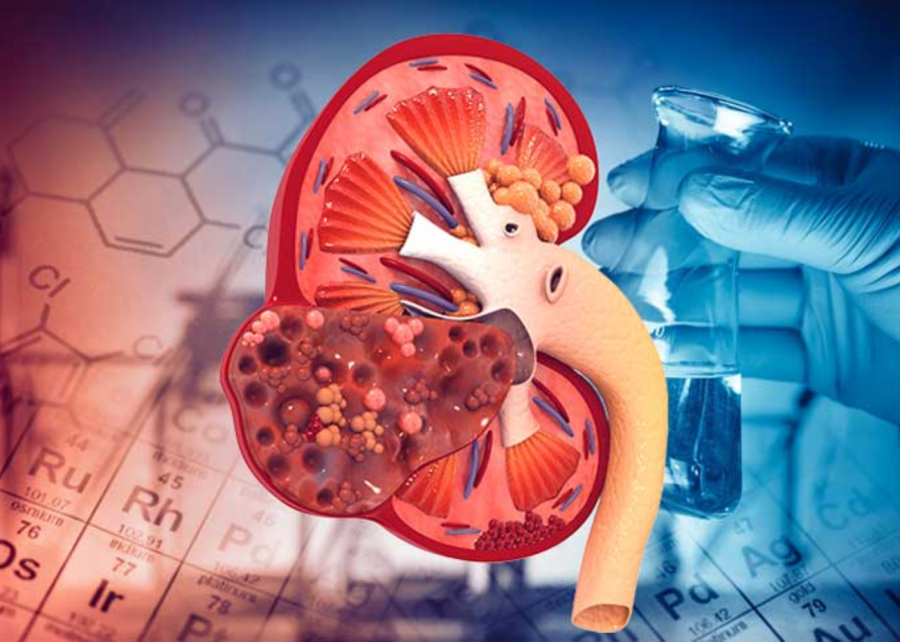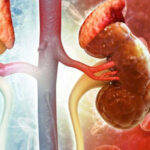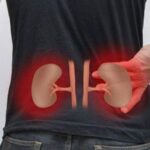Underestimating “Mild” Symptoms
H., a final-year student in Software Engineering, shared that about three months ago, he started experiencing frequent fatigue and difficulty concentrating in his studies. Despite eating normally, H. lost almost 5kg within a short period. Initially, H. attributed these symptoms to exam stress and late nights spent working on his thesis.
“I just felt tired all the time, had headaches, and slept poorly. On some days, I noticed my urine was dark and scarce, but I thought it was due to dehydration and didn’t pay much attention,” H. said.
It was only when he fainted in class and was rushed to the hospital that doctors discovered his creatinine and urea levels were abnormally high – a clear sign of severely impaired kidney function. Subsequent ultrasound and test results confirmed: H. was in the end stage of chronic kidney disease and needed either cyclic dialysis or a kidney transplant to survive.

Kidney Failure is Increasingly Affecting Younger People
A Nephrologist at the 115 People’s Hospital shared that H.’s case is not isolated. The number of kidney failure cases among young people, especially students and office workers, has been on a sharp rise in recent years. Unhealthy lifestyles, irregular eating habits, excessive consumption of soft drinks, painkillers, and prolonged sleep deprivation are the main culprits.
“Early-stage kidney failure is often subtle and shows no obvious signs. Patients might feel slightly tired, experience nocturnal polyuria, or mild edema… which can easily be overlooked. By the time symptoms like whole-body edema, high blood pressure, nausea, and extreme fatigue appear, the kidneys are already 80-90% damaged,” the doctor warned.
Warning Signs of Kidney Failure You Shouldn’t Ignore
Medical experts advise that for early detection and timely treatment, everyone – especially young people – should pay attention to the initial signs of kidney failure, including:
- Nocturia: Frequently waking up at night to urinate, even when fluid intake is limited.
- Changes in urine: Dark-colored, foamy, foul-smelling, or blood-tinged urine.
- Edema: Swelling in the face, hands, feet, or whole body due to the kidneys’ inability to filter excess salt and fluid.
- Prolonged fatigue: Feeling exhausted without strenuous activity, difficulty concentrating, and constant sleepiness.
- Nausea and loss of appetite: As the kidneys fail to eliminate toxins, they build up in the blood, leading to digestive issues.
- Uncontrolled high blood pressure: Impaired kidney function makes it challenging to manage blood pressure.

Advice from the Doctor
- Stay hydrated by drinking enough water daily and avoiding sugary soft drinks, milk tea, and excessive alcohol.
- Reduce salt and protein intake and avoid overly salty or meat-heavy meals.
- Do not take painkillers, especially non-steroidal anti-inflammatory drugs (NSAIDs), for extended periods without medical advice.
- Maintain a regular sleep schedule and avoid prolonged sleep deprivation, which puts strain on the kidneys.
- Get regular health check-ups every 6-12 months, especially if you have risk factors such as diabetes, hypertension, or obesity.
Kidney failure is no longer just a disease of the elderly. Today, young people are also at high risk due to unhealthy lifestyles and a tendency to underestimate the importance of their health. H.’s story serves as a stark reminder: Don’t wait until your body sends out distress signals to start taking care of your health. Making small changes to your habits today can protect your future tomorrow.



































